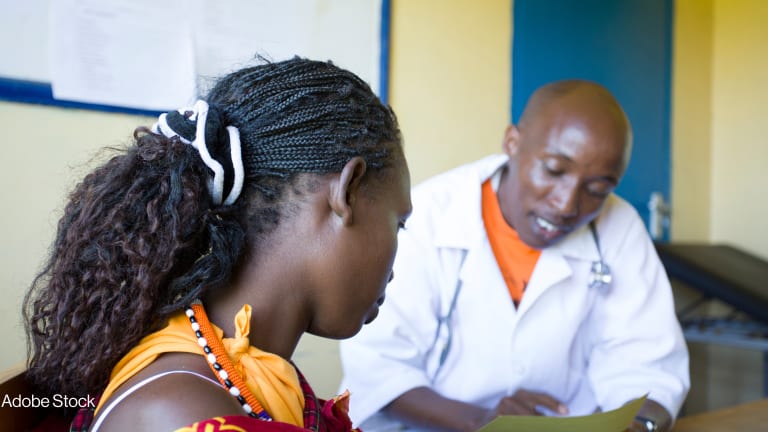Standing at the side of road hoping to hail a cab is becoming a thing of the past thanks to ride-hailing companies such as Uber and Lyft who have used mobile technology to revolutionize the taxi industry. Now the health care industry could follow suit by using cellphones to connect patients to nearby health workers, guide them to correctly assess a person’s condition and suggest treatment, send reminders to patients to take their medication and attend follow-up visits, and even enable them to pay for medication and visits using mobile money.
Workers in the field of digital health predict the same disruptive technologies which transformed the taxi industry, and also commercial sales (for example, Amazon), have the potential to revolutionize health systems in developing countries, improving health, efficiency, and management outcomes.
This is a view apparently shared by the World Health Organization, which recently announced it had convened an expert committee to create guidelines for countries and implementers on how to use digital health strategies to improve reproductive health outcomes.








